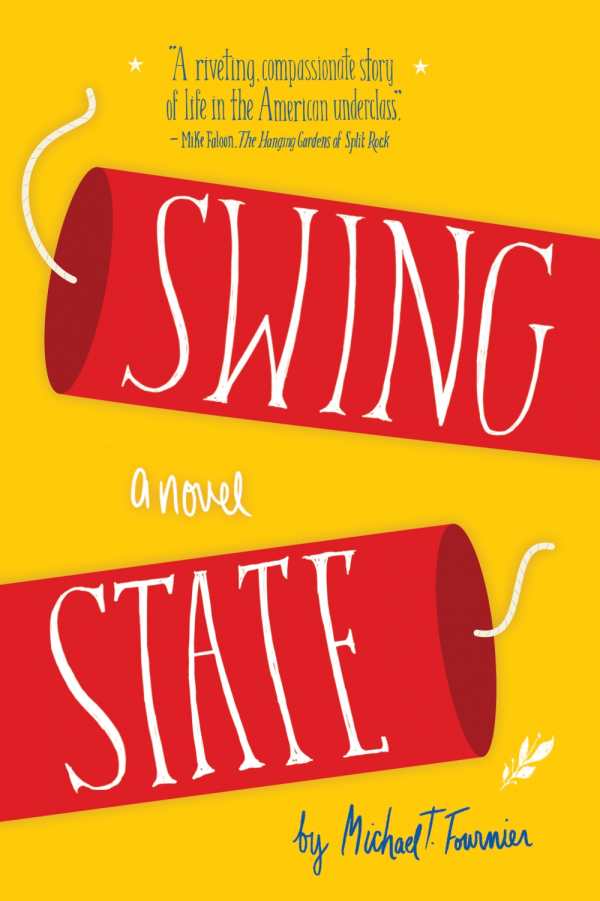Swing State
A Novel
Unembellished prose details the bleak nature of PTSD in this character-driven novel.
Pulling yourself up by your own bootstraps is the American way. But what if you can’t? What if those straps fall too short, or fall off completely? Michael T. Fournier takes a singularly unflinching look at just this situation in Swing State, a brisk yet bleak novel that gets into the heads of three distinct characters facing the grim realities of an economic recession in rural New England. Fournier presents each with a startlingly unique voice yet succeeds in showing that they face the same challenges in trying to get out of a town that seems determined to hold them down.
The town is Armbrister, New Hampshire, home of the Spartans football team and not much else. It’s to this run-down town that PTSD-plagued Afghanistan veteran Roy Eggleston returns, from which high-school bully and thief Dixon Dove plans to escape, and where abused, overweight middle-schooler Zachariah Tietz copes by inhabiting an elaborate fantasy world. By showing us the shuttered storefronts and drunk, unemployed fathers of Armbrister through his characters’ eyes, Fournier makes the setting feel exceptionally real, without ever stepping away from the story to provide elaborate descriptions.
This economy of words characterizes Fournier’s writing style, and Roy’s voice, in particular. The shell-shocked vet thinks in quick bursts, which Fournier reports unembellished. Here’s Roy on a job interview, for instance: “The lights buzzed. Crackled. White walls. Paneled ceiling.” Verbs and pronouns are few in Roy’s disconnected world; he doesn’t know what to do, or even who he really is. The clipped style takes a little getting used to, but once readers catch the cadence of Roy’s thoughts, they’ll feel like they know him.
Dixon and Zachariah have their own voices, too, but neither is as eccentric. Fournier dispenses with punctuation in Dixon’s case, omitting quotation marks when she tells her tale into a stolen tape recorder, for instance. Zachariah’s entries are the most conventional, but he too has his quirks: he lives a parallel life inside an invented television game show.
Fournier pulls no punches with Swing State—it’s a world where every step forward means two steps back. Few readers will expect a happy ending, though many may be surprised by the way the three stories ultimately merge. By making his characters simultaneously distinctive and authentic, Fournier ensures that readers carry on until the end and that they walk a mile in someone else’s shoes to get there.
Reviewed by
Sheila M. Trask
Disclosure: This article is not an endorsement, but a review. The publisher of this book provided free copies of the book to have their book reviewed by a professional reviewer. No fee was paid by the publisher for this review. Foreword Reviews only recommends books that we love. Foreword Magazine, Inc. is disclosing this in accordance with the Federal Trade Commission’s 16 CFR, Part 255.

